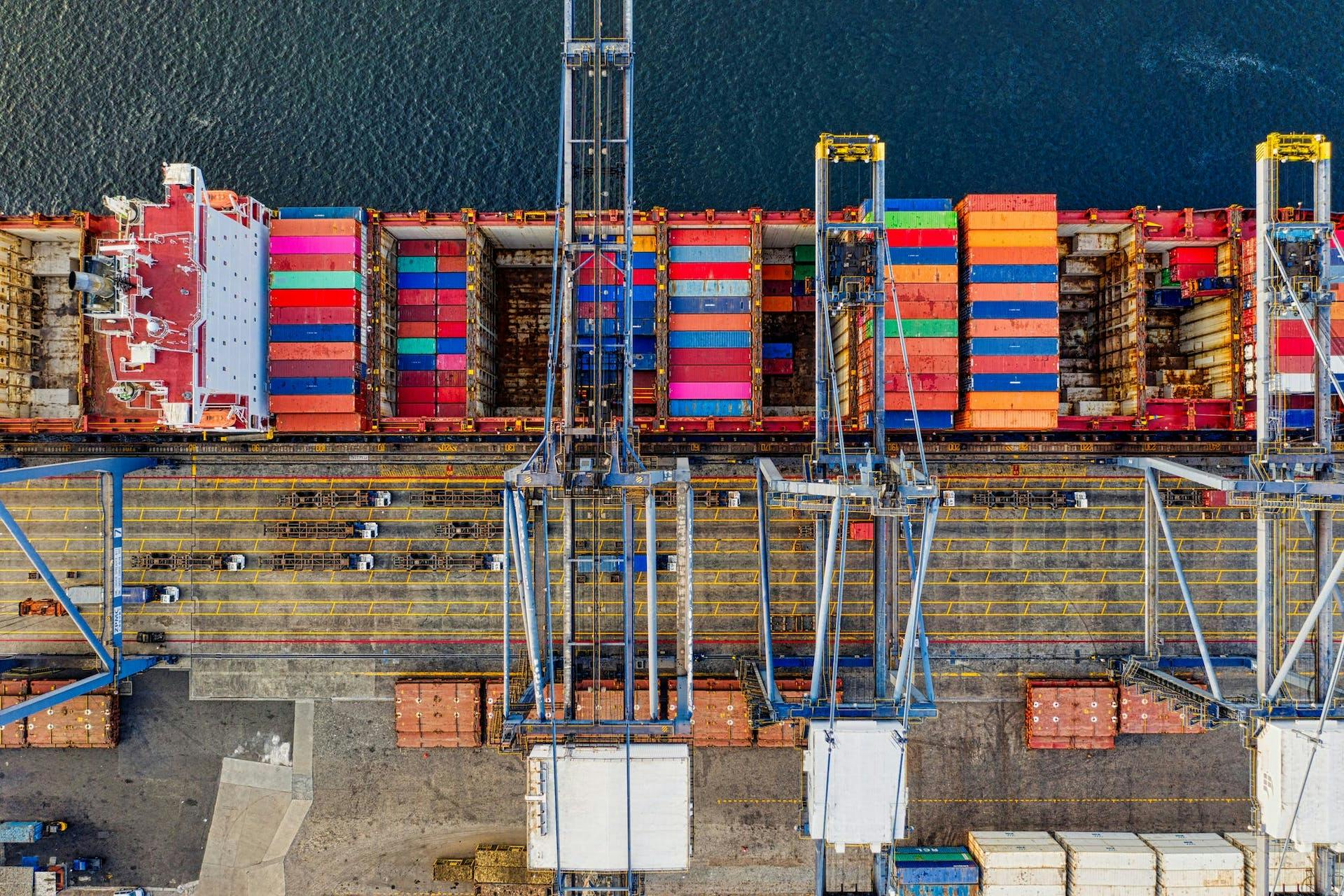Webinar replay | Global Supply Chain Architecture: Examining Red Sea’s Evolving Impact - Watch Now

Insights on decarbonization of logistics – a shipper’s perspective
The international logistics sector is facing a great challenge that will contribute towards the future health of our planet. That challenge is to decarbonize the freight supply chain with a goal of net zero emissions. How quickly we work to address this, and the mindset we apply, will directly affect our likelihood of success.
In our 2023 white paper, we look at the opportunities that will be presented to those companies that act decisively on this topic, and present a concrete action plan to help all parties within the freight supply chain to start reducing their emissions now.
As part of our research, we conducted interviews with shippers, freight-forwarders and carriers to gain their perspectives. In this article, Valérie Le Blanc shared with us her insights and vision as a shipper.
Corteva presentation - global pure-play agriculture company that provides farmers around the world with diverse seeds and crop protection. It currently operates in roughly 140 countries and its revenue is above US $17 billion worldwide in 2022
Interviewee - Valérie Le Blanc, Senior Logistics and Distribution leader Europe
What’s driving you to decarbonize your logistics operations?
Our culture and goal as a company is to contribute to sustainability, it’s part of our DNA. So when we consider our logistics operations, we naturally want to concentrate our efforts on the reduction of greenhouse gas emissions.
Why is it important to calculate your scope 3 emissions using accurate data?
Using accurate data (from Wakeo’s carbon calculator), we can easily access the information we need to ensure alignment with the European ruling of calculating CO2 for shipments. We can now accurately calculate our carbon footprint specific to the volume transported, specific to the transport mode and specific to the vehicle used.
When you measure the CO2 emissions of your actual shipments, you can start to take effective actions on a daily basis to reduce your carbon footprint. It also provides opportunities to reduce lead times and increase resilience.
With access to this shipment-level data, we're starting to understand the impact of our decisions within a transport mode on the same route with different carriers. For example, we can see the exact impact of better loading our containers.
Without accurate information, you cannot make any decision.

How do you see collaboration as being necessary for the logistics sector to reach net zero emissions?
This is very important. Carriers need to invest and understand what type of resources their customers will need. If we can interact directly with our carriers, then we can share our two or three year [decarbonization] strategies and we can work on solutions together.
For example, I think that on average, trucks are only 60% loaded and there are many return empties. There's a lot that can be done on this with better collaboration and it is a collaboration you can only have at the supply chain level.
In your experience, how can digitalization aid the decarbonization process?
When working to reduce scope 3 emissions, one of the biggest challenges is to actually get the data. A CO2 footprint digital solution frees up people’s time so that they can focus their efforts on where it will really make a difference. The tool interconnects different systems and all of the calculations, documentation and processes are done automatically. When optimizing operations, this is where we're able to bring more added value.
The nature of the current supply chain is that it relies on lots of low value actions. In logistics, the more you drop off and reload, the less efficient you are. It's the same with information - in order to be able to interact directly with an increasing number of transport partners, digitalization is an asset. It reduces the need for low value actions and allows data to pass through easily.
How do you think that the sector can accelerate its transition to being zero carbon?
I think that we need a change in culture for sustainability. In logistics, there is a general culture of firefighting problems. This leads to inefficiencies and a greater carbon footprint. If instead we solve problems upstream and implement an A plan, a B plan and a C plan, then we won’t need to break the rules and try to be heroes to make it happen. We need to be smart and agile people. This requires you to step back and design anticipatory planning. You need to have a panel of solutions available to address the potential problems before they occur.
There are parallels with the evolution of humanity. The firefighter approach is like when we were hunters and pickers. If there was nothing to pick, we just went elsewhere and continued, regardless of the damage we were causing. Then as farmers, we had to stay in one place, and therefore become responsible for our environment. We needed to cultivate our own resources, and to anticipate. But this in turn led to better yields, and less risk.
Let’s see what we can do, if we embrace this challenge with curiosity and an open mind. Beyond our carbon footprint, we can improve our efficiency, and therefore we’ll reduce our cost base and improve our margin.

You can only manage what you can measure
With Wakeo's carbon footprint calculator, you can monitor and control the emissions of your multimodal freight at a glance and identify the highest sources of transport emissions by transport modes, providers, destinations and transshipments. Find out more about how our carbon calculator can help you, as a shipper, to monitor your scope 3 emissions so that you can confidently identify the greatest decarbonization opportunities.